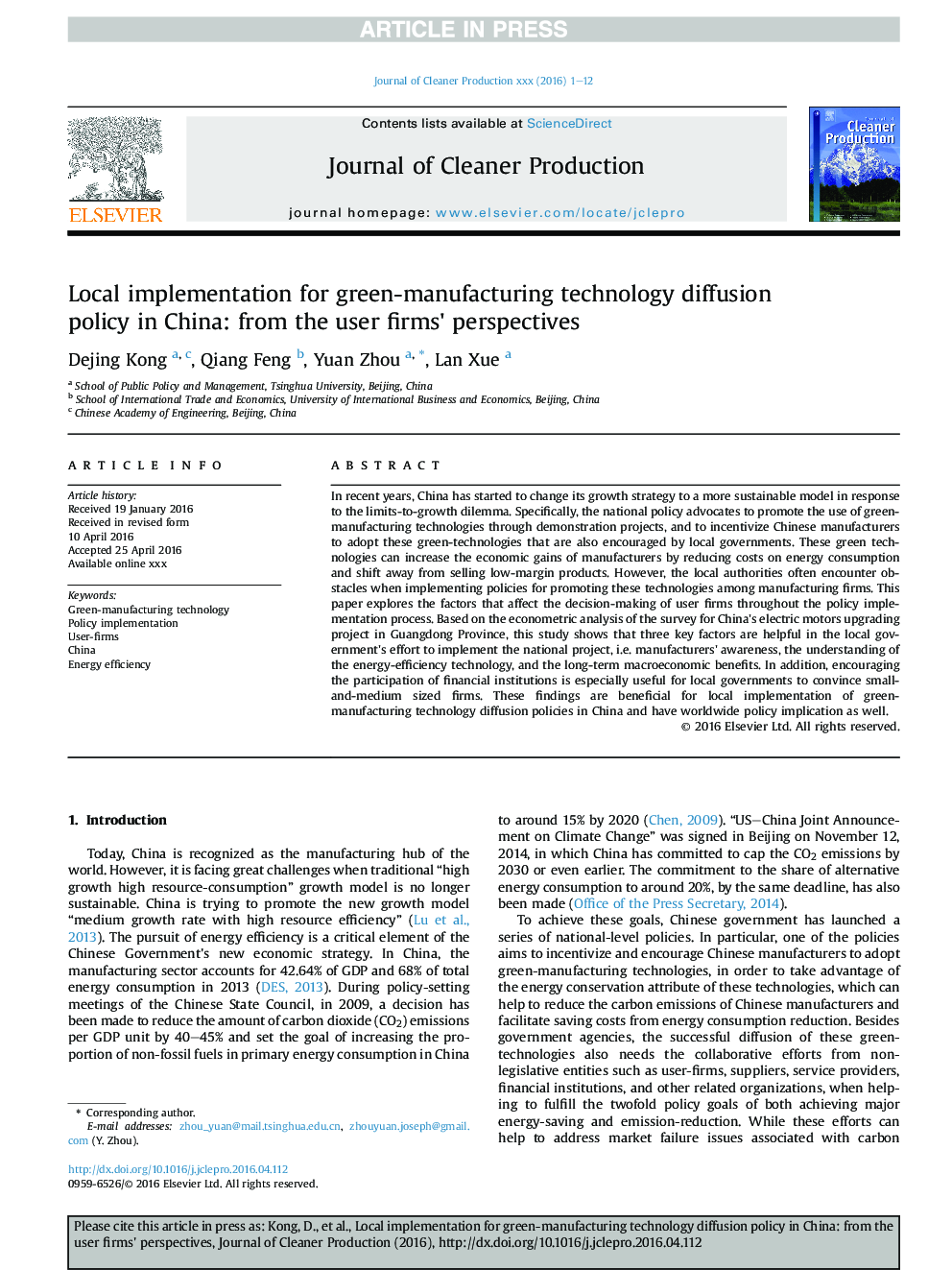| Article ID | Journal | Published Year | Pages | File Type |
|---|---|---|---|---|
| 8101838 | Journal of Cleaner Production | 2016 | 12 Pages |
Abstract
In recent years, China has started to change its growth strategy to a more sustainable model in response to the limits-to-growth dilemma. Specifically, the national policy advocates to promote the use of green-manufacturing technologies through demonstration projects, and to incentivize Chinese manufacturers to adopt these green-technologies that are also encouraged by local governments. These green technologies can increase the economic gains of manufacturers by reducing costs on energy consumption and shift away from selling low-margin products. However, the local authorities often encounter obstacles when implementing policies for promoting these technologies among manufacturing firms. This paper explores the factors that affect the decision-making of user firms throughout the policy implementation process. Based on the econometric analysis of the survey for China's electric motors upgrading project in Guangdong Province, this study shows that three key factors are helpful in the local government's effort to implement the national project, i.e. manufacturers' awareness, the understanding of the energy-efficiency technology, and the long-term macroeconomic benefits. In addition, encouraging the participation of financial institutions is especially useful for local governments to convince small-and-medium sized firms. These findings are beneficial for local implementation of green-manufacturing technology diffusion policies in China and have worldwide policy implication as well.
Related Topics
Physical Sciences and Engineering
Energy
Renewable Energy, Sustainability and the Environment
Authors
Dejing Kong, Qiang Feng, Yuan Zhou, Lan Xue,
